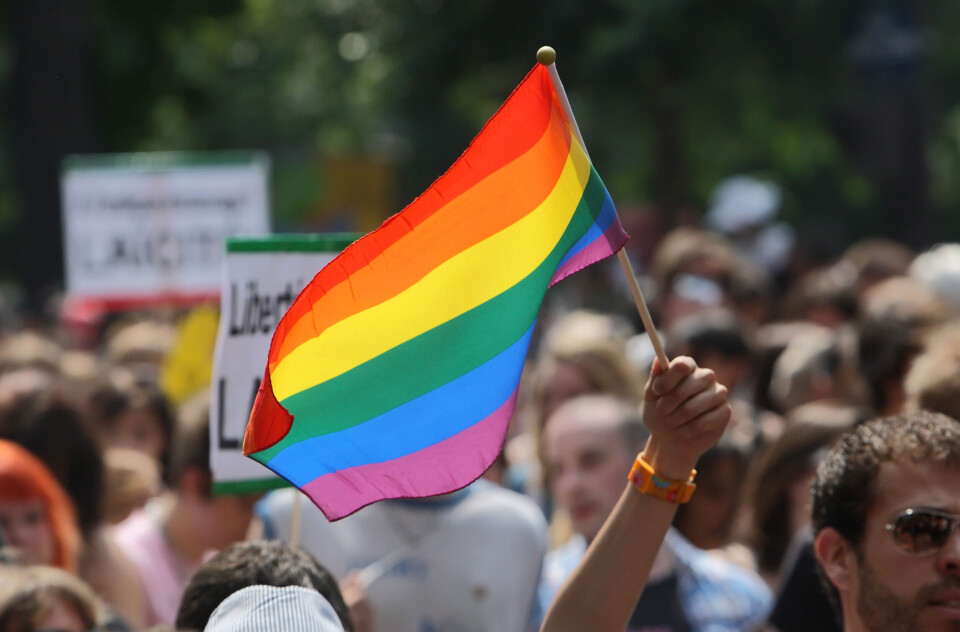-
La Voie Bleue: European Cycle Route of the Year is in France
700km bike path linking Luxembourg and Lyon has been crowned winner of the 2026 title
-
Before and after: Garonne river floods in south-west France
Satellite images show extent of flooding from back-to-back storms in February
-
Home insurance increases expected in France after floods
Compensation costs for the recent storms and flooding across the west and south-west is estimated to be in the billions of euros
Gay conversion therapy to become a specific crime in new law in France
Change will allow data on the number of such offences, carried out by various groups including religious associations, to be more easily gathered

France has adopted a new law that means people found guilty of practising gay conversion therapy will face at least two years’ imprisonment and a €30,000 fine.
The parliament passed the law yesterday (January 25) with MPs approving it unanimously.
Read more: Plastic, additives, conversion therapy: This week in French parliament
Conversion therapy is the practice of trying to convert LGBT+ people to become heterosexual or to conform to traditional gender norms under the banner of “curing” them. The practice has been scientifically discredited.
Matthieu Gatipon-Bachette, a spokesperson for French association Inter-LGBT, welcomed the new law, saying that “we are very happy with this progress”.
Technically, it was already possible to punish people practising conversion therapies in France by sanctioning them for various different offences, such as harassment, violence or the illegal practice of medicine, etc.
But the new law specifically criminalises the act of attempting to convert a person, which Mr Gatipon-Bachette said is “very important”.
“Before the law made it possible to condemn conversion therapies, but not explicitly. So, it was more difficult to get a conviction [against offenders].”
He said another advantage of the law is it will allow more data to be collected on the number of cases of conversion therapy being practised, as currently there are no concrete numbers.
In 2019, MPs estimated that there had been “hundreds” of recent cases, Le Monde reported.
Mr Gatipon-Bachette said that there are various different groups engaged in carrying these therapies out, such as religious groups or pseudo-scientific associations.
He said these can be international groups that have a presence in France, or domestic actors.
“It is important to fight against that,” he said.
“It is difficult to target these groups because the activity is often not promoted, and is informal or not organised in one place.”
He said he hoped the new law would help crack down further on offenders.
‘No place for this practice in France’
President Emmanuel Macron yesterday Tweeted his support for the new law.
“Let us be proud of it,” he said.
“These unworthy practices have no place in the Republic. Because being yourself is not a crime, because there is nothing to cure.”
La loi interdisant les thérapies de conversion est adoptée à l'unanimité !
— Emmanuel Macron (@EmmanuelMacron) January 25, 2022
Soyons-en fiers, ces pratiques indignes n'ont pas leur place en République. Parce qu’être soi n’est pas un crime, parce qu’il n’y a rien à guérir.
Elisabeth Moreno, the minister for gender equality, diversity and equal opportunities, said the therapies were the “antithesis to our Republican values”.
The law was carried by La République en Marche MP Laurence Vanceunebrock, and she thanked her backers after it was adopted.
“I am proud of my country,” she Tweeted.
“No one will be able to claim, under penalty of law, that they can cure #LGBT.”
La #ppl interdisant #TherapiesDeConversion est définitivement adoptée! Je suis fière de mon pays. Plus personne ne pourra prétendre, sous peine de sanctions pénales, pouvoir guérir les #LGBT. #RienAGuerir Merci à tous ceux qui m’ont soutenue. @1ElisaMoreno @lecoindeslgbt pic.twitter.com/jW7YP2VNE1
— Laurence Vanceunebrock (@LaurenceVanceu) January 25, 2022
Gay conversion therapies have already been banned in other European countries and regions, such as Germany, Malta and parts of Spain.
Proposed legislation has been drawn up in the UK that would make it illegal to carry out conversion therapies on minors or non-consenting adults, but rights groups have demanded an all-out ban, similar to the one now in place in France.
Homophobia still present in France
While welcoming the new law, Mr Gatipon-Bachette said that homophobia is still present in France.
“It may not be so overtly violent, but it is usually done in a more insidious way,” he said.
“This happens notably in the world of work or sports.
“It could be that people at work find out that their [male] colleague is in a relationship with another man and that can be a pretext for insults or bullying.
“It still happens that some people are harassed or attacked in the street, or coming out of nightclubs, but the biggest way that homophobia is present in France is through insults or slights.”
Related articles
French MPs pass law to make gay conversion therapy illegal
‘We wanted to show women pastors (and lesbian ones) exist in France'
























